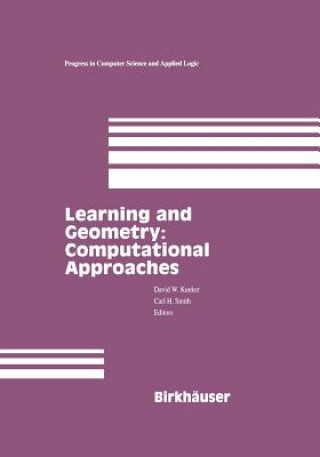
Dostawa
Doradca ds. zakupów





Jednak się nie przyda? Nic nie szkodzi! U nas możesz zwrócić towar do 30 dni
 Bon prezentowy
O dowolnej wartości
Bon prezentowy
O dowolnej wartości
Bon prezentowy to zawsze dobry pomysł. Obdarowany może za bon prezentowy wybrać cokolwiek z naszej oferty.
Learning and Geometry: Computational Approaches
 Angielski
Angielski
 304 b
304 b
 common.delivery_to
common.delivery_to
30 dni na zwrot towaru
Mogłoby Cię także zainteresować


The field of computational learning theory arose out of the desire to for mally understand the process of learning. As potential applications to artificial intelligence became apparent, the new field grew rapidly. The learning of geo metric objects became a natural area of study. The possibility of using learning techniques to compensate for unsolvability provided an attraction for individ uals with an immediate need to solve such difficult problems. Researchers at the Center for Night Vision were interested in solving the problem of interpreting data produced by a variety of sensors. Current vision techniques, which have a strong geometric component, can be used to extract features. However, these techniques fall short of useful recognition of the sensed objects. One potential solution is to incorporate learning techniques into the geometric manipulation of sensor data. As a first step toward realizing such a solution, the Systems Research Center at the University of Maryland, in conjunction with the Center for Night Vision, hosted a Workshop on Learning and Geometry in January of 1991. Scholars in both fields came together to learn about each others' field and to look for common ground, with the ultimate goal of providing a new model of learning from geometrical examples that would be useful in computer vision. The papers in the volume are a partial record of that meeting.
Informacje o książce
 Angielski
Angielski
Kategoria




 Jak kupować
Jak kupować




























